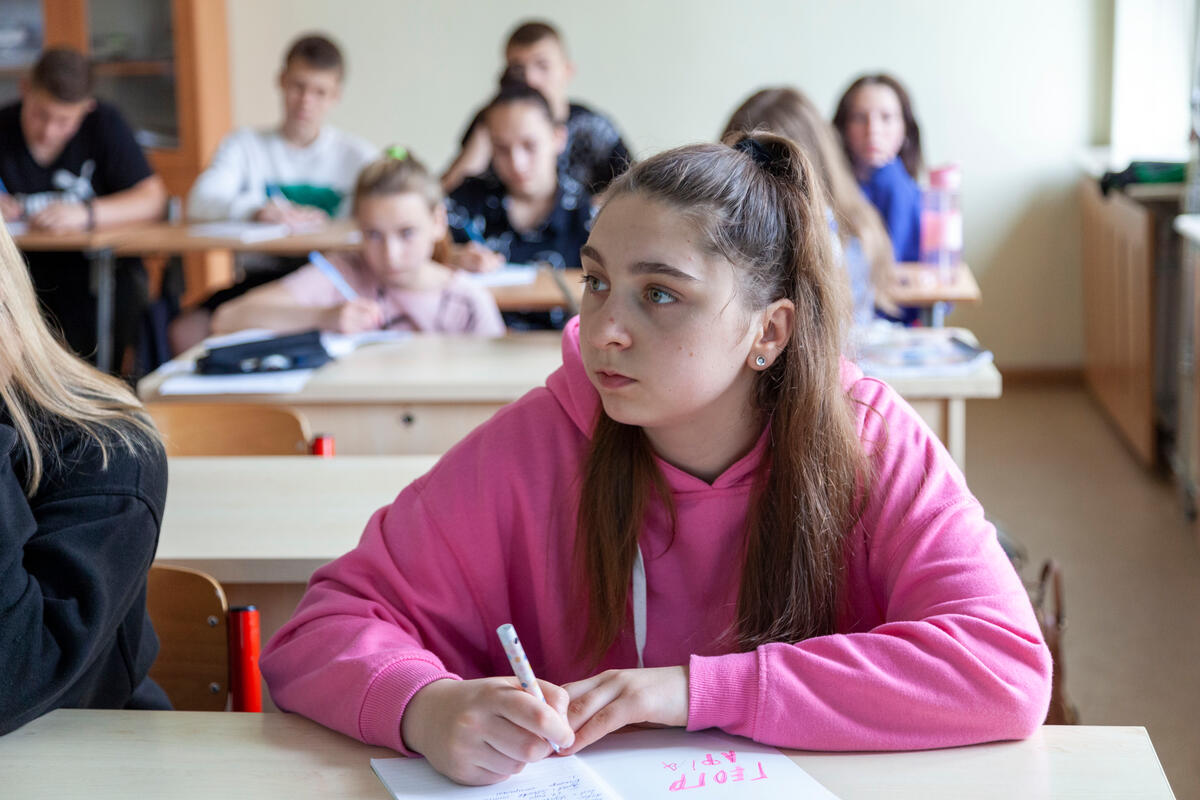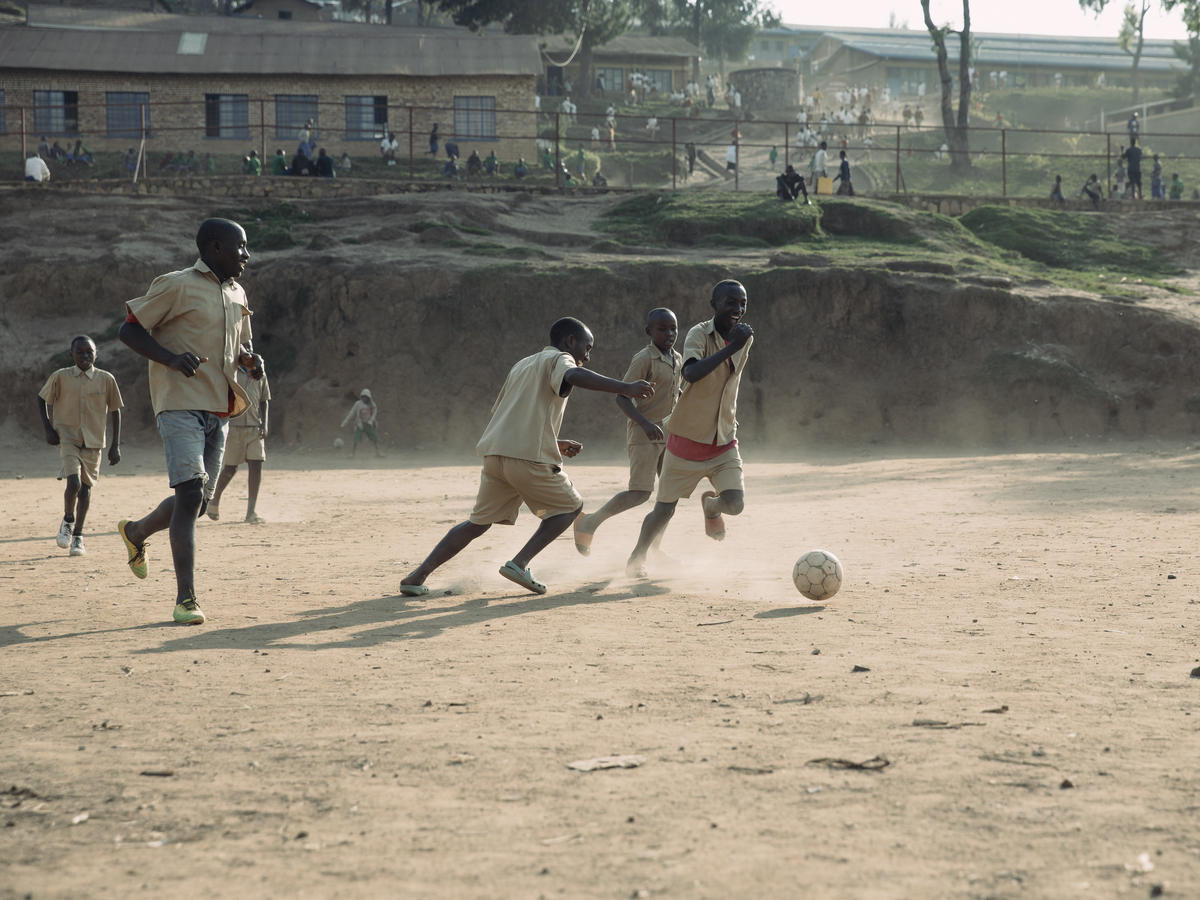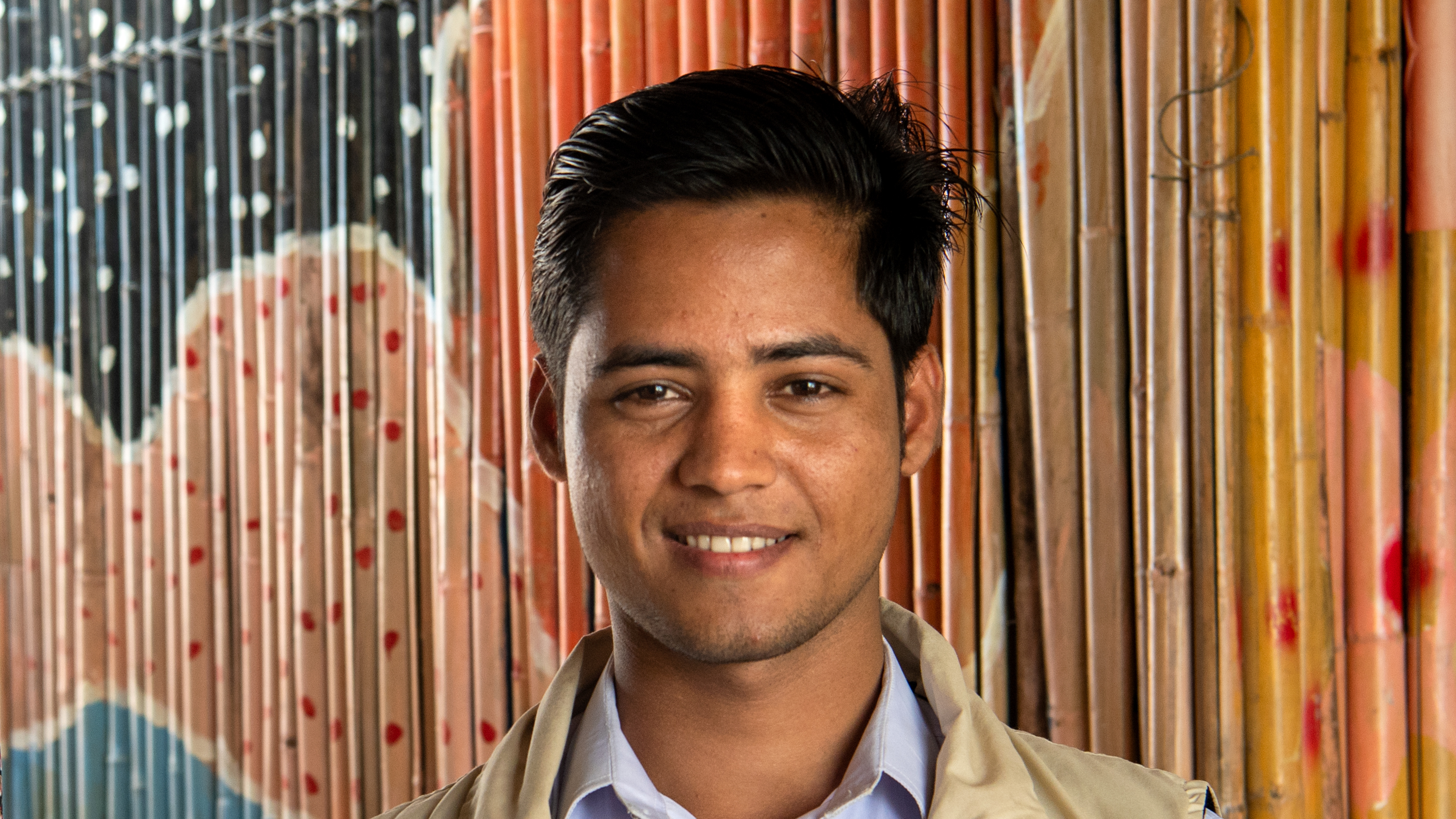UNHCR seeks urgent reunion of Chad children with families
UNHCR seeks urgent reunion of Chad children with families

ABECHE, Chad, November 13 (UNHCR) - Deputy High Commissioner for Refugees L. Craig Johnstone has visited 103 children at the centre of an alleged abduction bid in Chad and said they should be urgently reunited with their families.
Johnstone made his call after meeting the children - aged between one and 10 years old - at an orphanage in the eastern Chad town of Abéché on Saturday. "The children are being well cared for, but it was very painful and obvious to see that they are really missing their families and need to be returned to them as rapidly as possible so they don't become further traumatized by the deeply troubling circumstances of their alleged attempted removal to France," he said.
In a shaded section of the spacious orphanage courtyard, Johnstone met 82 young boys seated listlessly on mats and was introduced to the youngest - a one-year-old - by Chadian Red Cross carers. Later, in a separate area, he got down on his knees and joined in some of the games the 21 young girls were playing with coloured counters.
The children, mostly aged between three and five, are being cared for by Action Sociale - a Chadian group - and UNHCR, the Chadian Red Cross, UNICEF and a team of local volunteers.
Johnstone flew in to Abéché on Saturday from El Geneina in Darfur, Sudan, to start the second leg of his week-long mission to the region. He went straight to the orphanage after visiting Touka Ramadan, governor of eastern Chad's Ouaddai region, who told him of the anger of the local population over the alleged abduction.
Some parents, who claim they were never told their children would be taken to France by the NGO Children Rescue/Zoe's Ark, had travelled to Abéché from towns along the border with Sudan and were desperate to be reunited with their offspring.
Johnstone said he recognized the process of tracing the rightful families had to be accurate and that it took time, but he added that once parents and families were identified, the reunion should be swift in the best interests of the children.
"Not a moment should be lost. They were shocked, crying and traumatized when they were found and they and their parents should not suffer one second more than necessary," he added. The Chadian authorities are still discussing how the methods for reuniting the families will take place.
During Johnstone's meeting with Touka Ramadan, the governor stressed that the work of humanitarian organizations in helping some 240,000 Sudanese refugees in the east of the country and an estimated 180,000 conflict-displaced Chadians was vital. He also said traditional, religious and community leaders were talking to the local population to help calm feelings, which have been running high.
On Sunday, Johnstone flew south from Abéché to review UNHCR's operations in the Goz Beida area, where a large concentration of refugees from Darfur are living almost alongside Chadians displaced by inter-ethnic conflict. Some 90,000 displaced people in the area need assistance, along with 35,000 refugees.
On Monday, Johnstone went to the north-eastern area of Bahai area, where he visited Oure Cassoni camp, which houses some 28,000 refugees and is located close to the border with Sudan.
He flew late Monday to the Chad capital, N'Djamena, where he was due Tuesday to meet senior government officials, UN partners, members of the diplomatic community and UNHCR staff before catching a late night flight for Geneva.
By Jennifer Pagonis in Abéché, Chad








